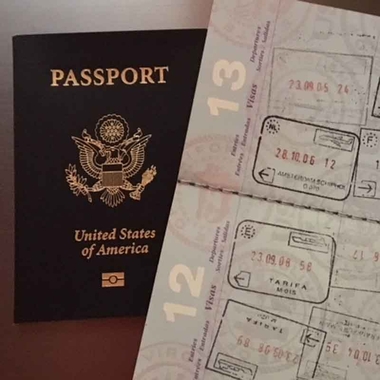LGBT+ international travel tips

Most in the LGBT+ community by now are aware that, under President Trump, most government departments have taken a turn away from LGBT+ affirmative issues. So it is a surprise that the State Department still maintains a webpage about LGBTI Travel Information and that it is comprehensive and affirmative.
The page opens with a straightforward statement: “Lesbian, gay, bisexual, transgender, and intersex (LGBTI) travelers face unique challenges when traveling abroad. Laws and attitudes in some countries may affect safety and ease of travel. Legal protections vary from country to country. Many countries do not legally recognize same-sex marriage. More than seventy countries consider consensual same-sex sexual relations a crime, sometimes carrying severe punishment.”
It then proceeds with advice on how to have a pleasant and safe trip.
A few of the general suggestions on the page:
- Research your destination – it points to specific country information for LGBT+ travelers in the “country information”
- Check out their “Traveler’s Checklist” which includes destination information, safety and security information, health precautions, getting your passport and obtaining visas where required
- Enroll in the “Smart Traveler Enrollment Program (STEP) which will send travel and security updates about your destination, and helps the department reach you in an emergency.
The country information pages are detailed and simple to use. You just hover over the country you are planning to visit, click on it, and go to Special Laws & Circumstances section of that country’s LGBT+ climate.
Particularly for transgender travelers, the site says, “Some travelers have reported difficulties entering a country on a passport bearing a name and photo that no longer corresponds to their gender presentation.”
It then gives hotlinks with information about how to change your name or update the gender designation on your passport.
The page gives several pointers for staying safe while abroad:
- Remember you are subject to the laws of the country where you travel. In many countries, consensual same-sex sexual activity, public gathering, or dissemination of pro-LGBTI material may be illegal. Read the country information for your destination for more details.
- Be cautious of potentially risky situations. Don’t do anything you wouldn’t do at home.
- Avoid excessive physical displays of affection in public, especially in more conservative countries or regions.
- Watch out for entrapment campaigns. Police in some countries monitor websites, mobile apps, or meeting places, so be cautious connecting with the local community.
- Be wary of new-found “friends.” Criminals may target or attempt to extort LGBTI foreigners.
- Some resorts or LGBTI neighborhoods can be quite segregated. Be aware attitudes in surrounding areas can be much less accepting.
In closing, the site give other useful lengths, including information for transgender travelers from the Transportation Security Administration (TSA), a global database for travelers living with HIV about country specific information on HIV-related travel and restrictions and a link to the International Gay/Lesbian Travel Association’s (IGLTA) website.
Visit the State Department’s LGBTI Travel Information page for complete information.
Copyright The Gayly – October 29, 2017 @ 3 p.m. CDT.





